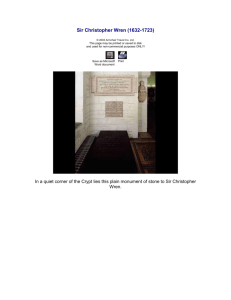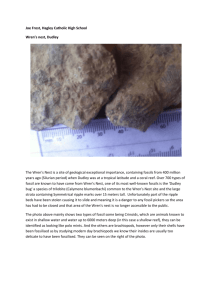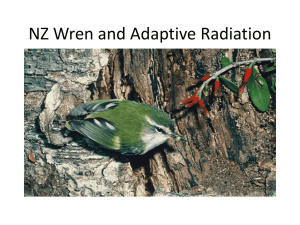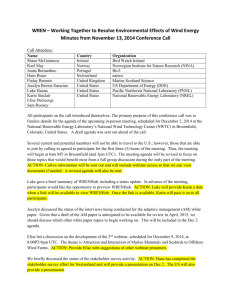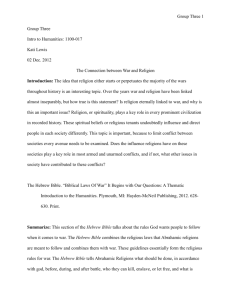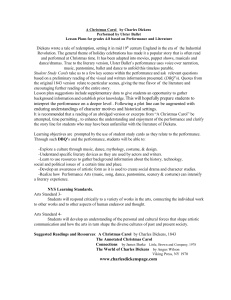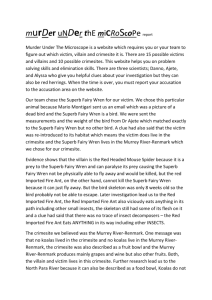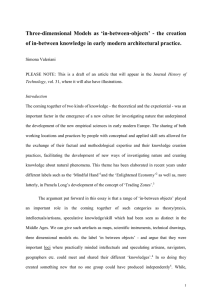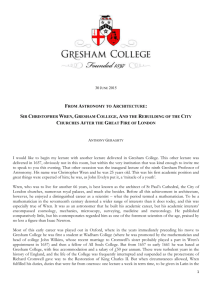Call for Papers: The Afterlife of Sir Christopher Wren 1850
advertisement
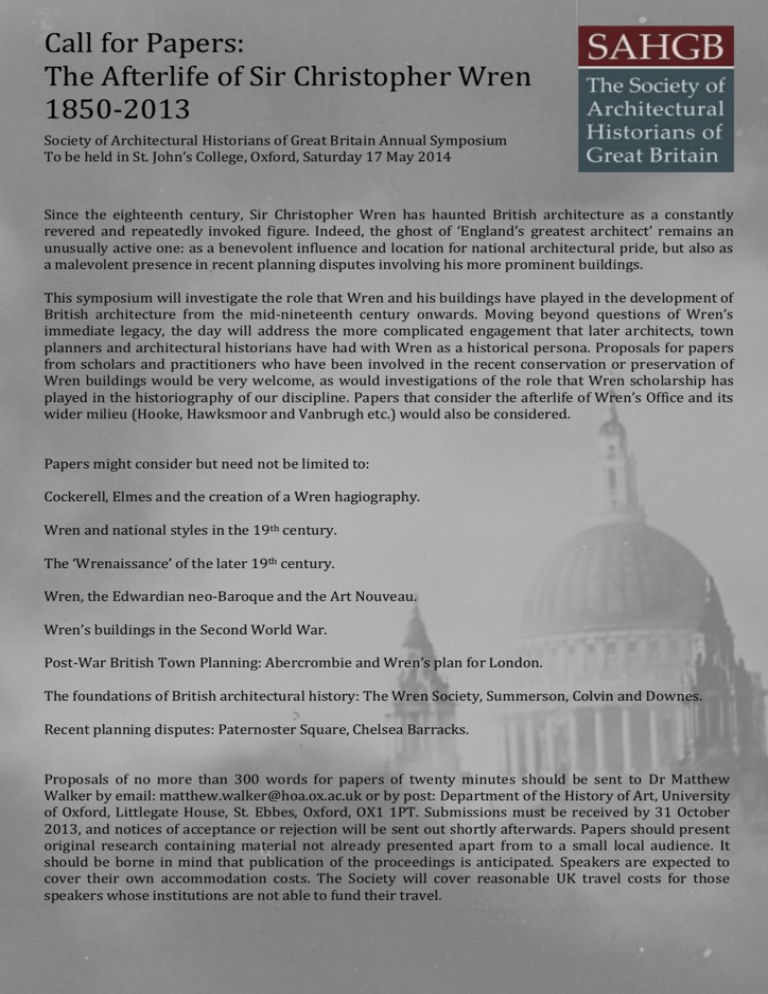
Call for Papers: The Afterlife of Sir Christopher Wren 1850-2013 Society of Architectural Historians of Great Britain Annual Symposium To be held in St. John’s College, Oxford, Saturday 17 May 2014 Since the eighteenth century, Sir Christopher Wren has haunted British architecture as a constantly revered and repeatedly invoked figure. Indeed, the ghost of ‘England’s greatest architect’ remains an unusually active one: as a benevolent influence and location for national architectural pride, but also as a malevolent presence in recent planning disputes involving his more prominent buildings. This symposium will investigate the role that Wren and his buildings have played in the development of British architecture from the mid-nineteenth century onwards. Moving beyond questions of Wren’s immediate legacy, the day will address the more complicated engagement that later architects, town planners and architectural historians have had with Wren as a historical persona. Proposals for papers from scholars and practitioners who have been involved in the recent conservation or preservation of Wren buildings would be very welcome, as would investigations of the role that Wren scholarship has played in the historiography of our discipline. Papers that consider the afterlife of Wren’s Office and its wider milieu (Hooke, Hawksmoor and Vanbrugh etc.) would also be considered. Papers might consider but need not be limited to: Cockerell, Elmes and the creation of a Wren hagiography. Wren and national styles in the 19th century. The ‘Wrenaissance’ of the later 19th century. Wren, the Edwardian neo-Baroque and the Art Nouveau. Wren’s buildings in the Second World War. Post-War British Town Planning: Abercrombie and Wren’s plan for London. The foundations of British architectural history: The Wren Society, Summerson, Colvin and Downes. Recent planning disputes: Paternoster Square, Chelsea Barracks. Proposals of no more than 300 words for papers of twenty minutes should be sent to Dr Matthew Walker by email: matthew.walker@hoa.ox.ac.uk or by post: Department of the History of Art, University of Oxford, Littlegate House, St. Ebbes, Oxford, OX1 1PT. Submissions must be received by 31 October 2013, and notices of acceptance or rejection will be sent out shortly afterwards. Papers should present original research containing material not already presented apart from to a small local audience. It should be borne in mind that publication of the proceedings is anticipated. Speakers are expected to cover their own accommodation costs. The Society will cover reasonable UK travel costs for those speakers whose institutions are not able to fund their travel.
